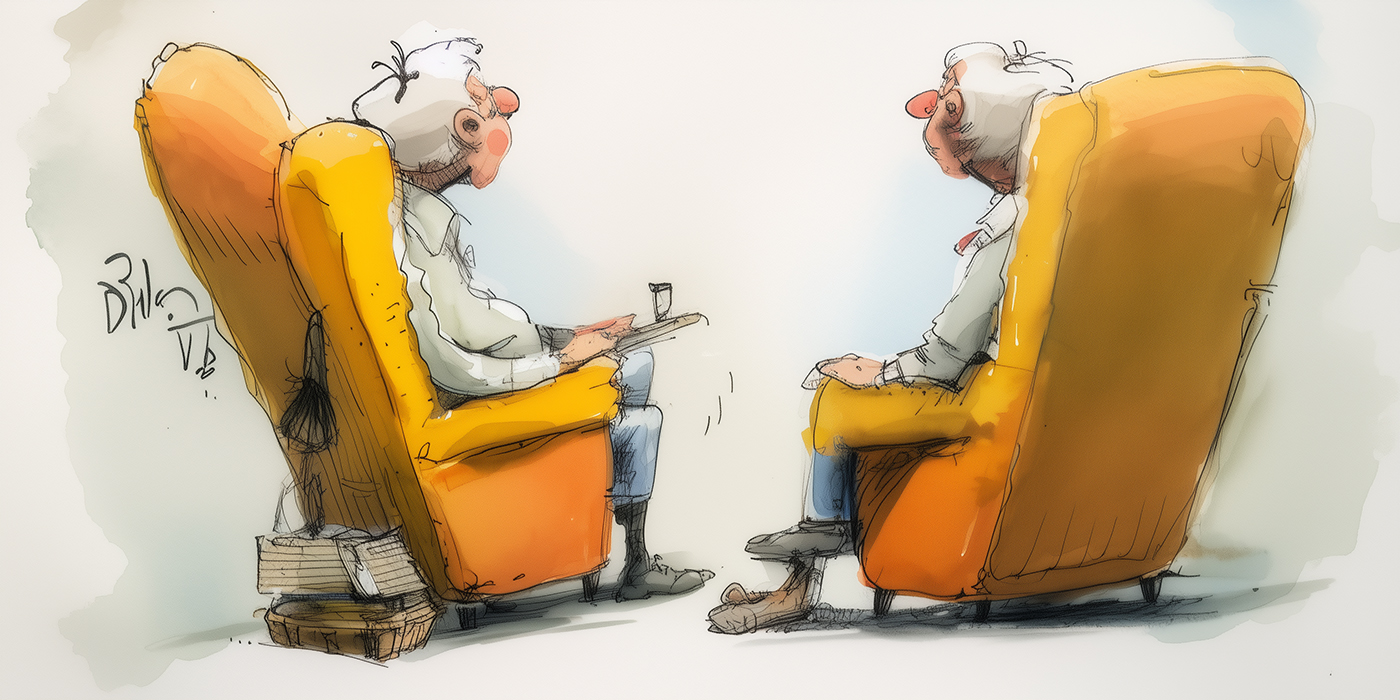From the beginning, I have followed the principle of “least possible organization” (Ninth Tradition long form) when it comes to organizational structure at the national level, which is the principle most groups follow at the group level. That’s the principle that worked so well in AA. As AA developed in Akron and NYC, then started to spread, it had no organizational structure whatever. It was a spiritual entity that grew from the inside out. Problems and issues were hammered out under the first two trusted servants as the group conscience principle slowly evolved. It took AA many years before it proved to be strong enough and responsible enough to handle the structure it has today.
Here’s a sampling of how things have worked so far; and, by God’s grace, it has been working so far in SA:
1. SA meetings began in the L.A. area in 1978 and 1979 and went through the same process most SA groups go through now: members coming in and going out, people getting sober and going back out there, a few staying sober. That was SA; there was nothing else anywhere. Local group conscience was it, for it was the only group! I remember that very first public meeting in Hollywood where an informal group conscience voted to use the AA approved literature and have closed meetings (sexaholics only).
2. With publication of the first Dear Abby column, we had the first “shotgun” impulse that put us on the map nationally. That one little column required setting up an office operation here that could handle the 3000 inquiries that came in. But SA was very shaky everywhere, with ones and twos trying to get sober and get a meeting together. This was June of ’81.
3. The weekend of July 26, 1981 saw our first “national” get-together here. We weren’t alone anymore, and I wanted us to be and act together under God. Eleven attended, but only nine were involved in that first business meeting—two women and seven men. We were it because there was no one else that would come. Around that rented table in my garage we sat and came to agreement on such things as meeting format, meetings closed to non-sexaholics, and no smoking during meetings. We also agreed on the wording of the Chapter 3 and 5 Big Book excerpts. This was the session where we dropped the paragraph mentioning homosexuality, prostitution, adultery, and promiscuity from what has come to be our “What Is A Sexaholic and What Is Sexual Sobriety” (page 4 of the booklet). It was agreed that the garage-shop operation here continue as the focal point for national 12th Step work. Of those nine attending in 1981, only two are sober today and still in SA. And that was the only “governing” session that body was involved in.
As we look back at that informal, unorganized gathering now, we see that we were simply hammering out things that had to be dealt with. No one had any titles or authority, and there was no organizational structure. We worked together in a beautiful consensus—not without some heat and a few sparks flying off in the process, however. We had what we needed, and it worked.
4. In September of 1981 another sober member and I spent a month traveling to the various areas where there were individuals wanting to get started. The job cried out to be done, and at the time we were in a position to do it. Again, no titles or authority, just sex drunks having a marvelous time meeting each other for the first time and witnessing what God had in store for us.
5. In October of 1981 some issues arose that I felt required a national consensus. (There were probably not over 50 people in SA at that time.) In September, the other member and I had visited an SAA group in the Twin Cities, and while there asked if they wanted dialog with SA. In a series of letters and phone calls I asked all the groups and sober loners for feedback on such issues as whether to pursue dialog with SAA and the Statement of Principle that would form the basis of that dialog. I also submitted three pieces of literature (Lust Kills, The Problem, and What Is Lust?) for review and feedback. That process worked very well; the fellowship voted for dialog and the Statement & literature and went on record as stating we should in no-wise compromise our stand on use of the AA program. Again, as the need arose and we decided to put our heads and hearts together, we did what had to be done within the framework of a living organism.
6. In 11/81 I applied for tax-exempt status with the IRS so member contributions, including my own, could be legally tax-deductible. Members were wanting to share the cost of running the operation here, and we felt being tax-deductible was the way to go. However, this produced an unforeseen side effect. Since we had to show on paper what SA was, I was advised by the IRS to provide a list of people we could show as a governing body on the Form 1023. Thus, I wrote: “The following persons are Delegates to the national General Service Conference of Sexaholics Anonymous and as such represent the group conscience of the membership at large,” listing the names of ten men who agreed to the use of their names for that purpose. But there was no General Service Conference formally set up as it is in AA today. And those ten men never acted as Delegates, never met together, and never acted on matters affecting the fellowship at large. We were still playing it by that loose “national” consensus as we went along, as we had before.
When JH and I wrote the letter of response for all the media requests that came in from the Dear Abby column, we slapped on the signature the words “General Service Board” at the end so one individual wouldn’t have to sign his name to the thing and so it could still carry some weight. That this was never deleted from that form letter was an oversight. There is no General Service Board of SA.
7. In the ESSAY newsletter of November 1981 I introduced the First Step Inventory and asked for feedback on it. The organizational principle here again was informal, relying on the “group conscience” of the fellowship at large as well as on my own experience, testing one against the other.
8. In April of 1982 I asked key sober men in the fellowship to join with me in an hour of prayer for SA.
9. In January of 1983 I called for a “spiritual retreat with urgent practical overtones and aims.” Two women and five men made it that time. Since I had just gone to full-time employment again, I was looking for help here at Central. We also discussed whether there should be any media coverage at that time and decided against it. Again, there were no titles and no organization in the formal sense. We simply got together and did what had to be done, and no one structured the thing.
10. Later in 1983, with the work here at Central and the needs for literature increasing, I felt the need for another “national” get-together; and it was important to try and get more people involved in the national 12th-Step work. At first, I called this a retreat, since I was primarily concerned with the spiritual problems being encountered in the fellowship. I changed it to a “conference” when these other issues came to the fore.
The December get-together was quite an experience for us; and we’re back now to where we were before, only a little wiser. In perspective, many of us see that it was too much too soon. Going full-blown formal Organization all at once at this time would be like man trying to jump from log-cabin country dwellings to big-city skyscrapers overnight without benefit of any intervening stages and the opportunity for natural growth they afford. But apparently we had to go through that to see it. The response of the fellowship to the handling of leads has been disappointing. The enduring result of the December get-together, I feel, was its action for agreement on use of the SA booklet. Here again, things don’t always work out the way we plan.
These are just a few highlights to let you know how SA has been working so far. My best suggestion to the fellowship is that we make haste slowly in this matter of organizing SA. I can’t put it any better than JH and his fellow-members, who say,
- “…Work within what we have, and at least until there is more numerical sobriety in our national fellowship, go for change only when the situation screams for it.”






